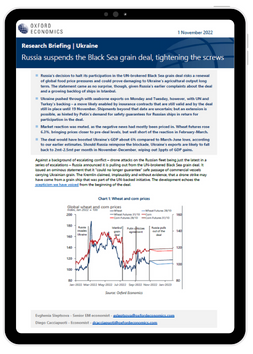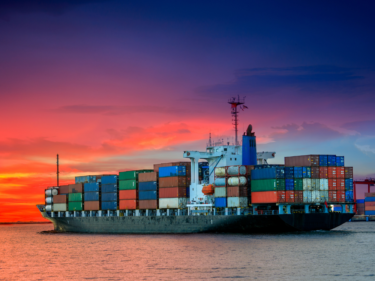Russia suspends the Black Sea grain deal, tightening the screws on Ukraine

Russia’s decision to halt its participation in the UN-brokered Black Sea grain deal risks a renewal of global food price pressures and could prove damaging to Ukraine’s agricultural output long term. The statement came as no surprise, though, given Russia’s earlier complaints about the deal and a growing backlog of ships in Istanbul.
What you will learn:
- Ukraine pushed through with seaborne exports on Monday and Tuesday, however, with UN and Turkey’s backing – a move likely enabled by insurance contracts that are still valid and by the deal still in place until 19 November. Shipments beyond that date are uncertain; but an extension is possible, as hinted by Putin’s demand for safety guarantees for Russian ships in return for participation in the deal.
- Market reaction was muted, as the negative news had mostly been priced in. Wheat futures rose 6.3%, bringing prices closer to pre-deal levels, but well short of the reaction in February-March.
- The deal would have boosted Ukraine’s GDP about 6% compared to March-June lows, according to our earlier estimates. Should Russia reimpose the blockade, Ukraine’s exports are likely to fall back to 2mt-2.5mt per month in November-December, wiping out 3ppts of GDP gains.
Tags:
Related Services


Service
European Cities and Regions Service
Regularly updated data and forecasts for 2,000 locations across Europe.
Find Out More
Service
Economic and Political Risk Evaluator
A framework for assessing economic and geopolitical risks.
Find Out More
Service
European Macro Service
A complete service to help executives track, analyse and react to macro events and future trends for the European region.
Find Out More